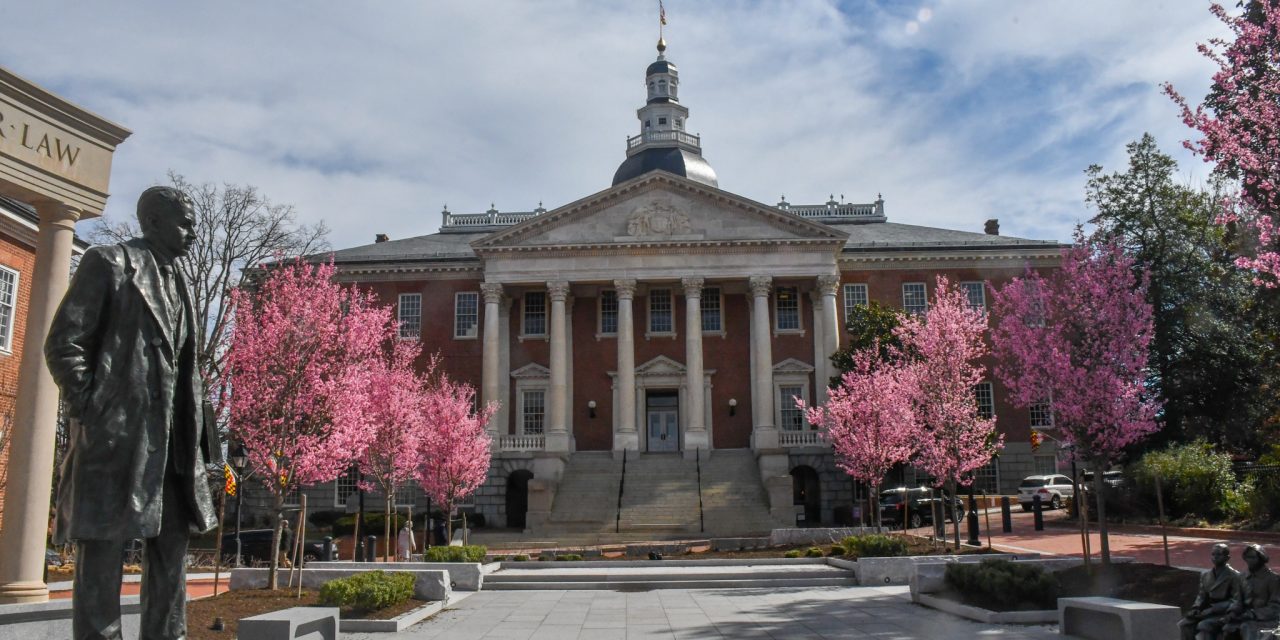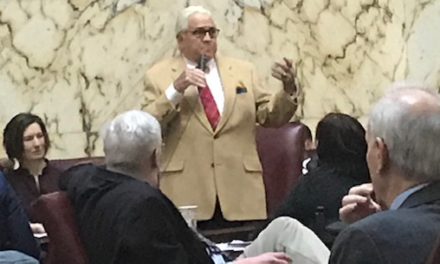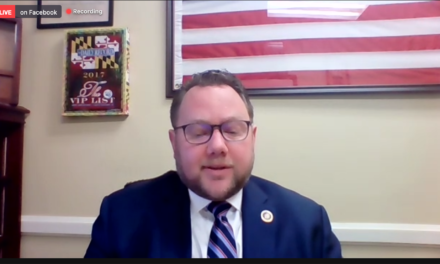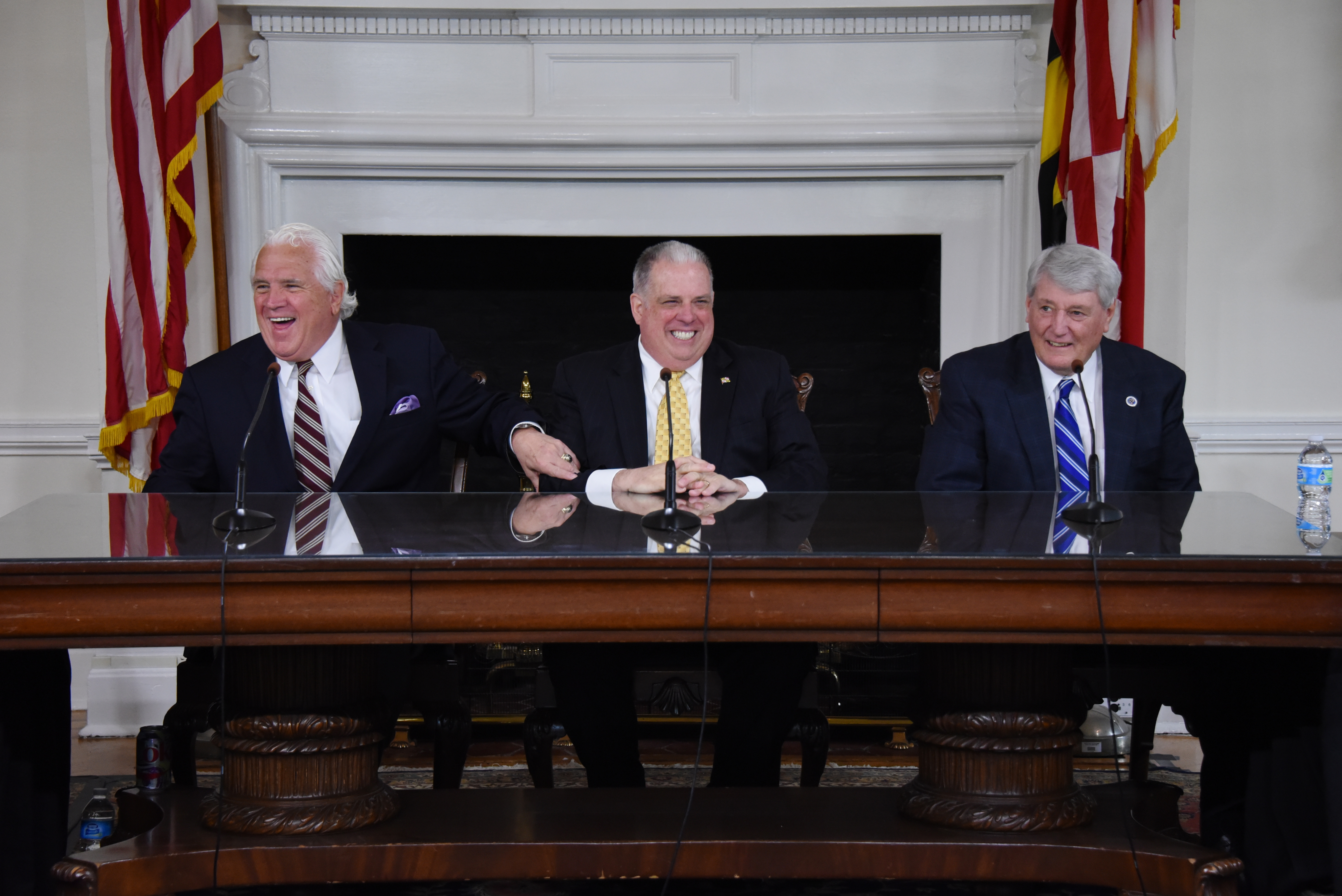By LYDIA HURLEY
Capital News Service
Annapolis, Md. – Some Democratic lawmakers in Maryland are proposing a set of income tax hikes this year, but even bill sponsors have admitted that getting their colleagues on board will likely be a long-haul effort.
The lawmakers aim to address a looming state budget deficit with a bill that would raise an estimated $1.6 billion per year for the state’s general fund once it’s fully phased in, supporters say.
Supporting lawmakers want to start to build the case for a restructuring of the tax system, even if the initiative doesn’t seem likely to pass this session, Sen. Shelly Hettleman, D-Baltimore, the sponsor of the Senate bill, said.
“I’m under no illusion that the bill is going to pass this year,” Hettleman said, laughing. “However, there are important policy issues that as a legislature we need to be considering as we’re trying to figure out how we’re going to pay for the services Marylanders value and need.”
The sponsoring lawmakers hope to shift more of the tax burden from working families onto high-income earners and corporations, while relying on tax credits to assist in closing the income gap. Other states are making similar moves. Massachusetts passed a law in 2022 that requires a 4 percent income tax on those who earn more than $1 million annually.
Advocates for businesses are worried that the bill would threaten corporations and small businesses and might even deter them from operating in Maryland.
Aside from the bill sponsors, though, most Maryland officials are not jumping at the chance to raise taxes this election year. Democratic Gov. Wes Moore introduced a 2025 fiscal year budget that is balanced without any tax increases. This is despite the fact that the state is projected to face a deficit of $1.8 billion in 2028 if it doesn’t dramatically change its spending and revenue habits.
The deficit might threaten Maryland’s ability to keep some of its most important state programs adequately funded, advocates say.
“We see looming holes in the budget that need to be dealt with. Otherwise, we’re going to have to start cutting things,” Del. Julie Palakovich Carr, D-Montgomery, the sponsor of the House bill said.
Health care, education and transportation all depend on state funding, said Kali Schumitz of the Maryland Center on Economic Policy. The budget deficit might inhibit the state’s ability to keep money flowing toward these initiatives, Schumitz said.
The revenue raised by the bill, known as the Fair Share Maryland for Act of 2024, aims to address these concerns. A major goal of the bill is to increase income taxes for Marylanders who earn more than $250,000 a year.
The bill would also reduce taxes for lower-income earners by expanding Maryland’s Child Tax Credit, Schumitz added. The additional funds would make more people eligible for the tax credit by increasing the maximum earning level allowed.
“This would increase the number of kids benefitting from the credit, which is a really powerful anti-poverty tool,” Schumitz said.
Child tax credits would assist working families, bringing economic relief to those who need it most, said Terry Cavanagh from SEIU 500, a public sector workers union, told lawmakers in the Senate bill hearing on Wednesday.
The increased income taxes would go toward the state’s general fund, and lawmakers can use their discretion to decide where the funding should go, said Palakovich Carr.
Economic justice advocates are urging lawmakers to consider using the revenue on education. If not, schools could be left severely underfunded, said Shamoyia Gardiner, Executive Director of Strong Schools Maryland, a grassroots educational organization. A similar fate is possible for the Blueprint for Maryland’s Future, an initiative that is fully funded only for the next couple of years, Gardiner added.
Other advocates think lawmakers should use it to support housing affordability and assistance, as these initiatives go hand-in-hand with education, Schumitz said. “There’s an increasing recognition that all these things are interconnected,” Schumitz added.
The bottom line for some lawmakers is that, regardless of where funds may be used, the tax system needs a restructuring.
“Our tax system is upside down. The wealthiest 1 percent of Marylanders, people making over $700,300 a year, pay a smaller share of their income in state and local taxes than people in any other income group,” Schumitz said.
The bill is a way to “check and rebalance the fairness” of Maryland’s tax system and re-evaluate funding state programs, Hettleman said.
Unlike in some other states, this initiative has not been labeled a millionaires tax because the tax increase would impact some high earners who make less than $1 million.
The impact on tax rates wouldn’t be as drastic as it seems, some advocates say. “More people are actually getting a tax cut than a tax increase under this bill,” Christopher Meyer, a research analyst at the Maryland Center on Economic Policy, said.
The bill also aims to close corporate tax loopholes that allow big corporations to file taxes in places that don’t charge a corporate income tax, avoiding paying the income taxes they owe in Maryland, Schumitz said.
The legislation would address this by requiring parent corporations to file a combined tax return, reflecting the income of all its subsidiaries as one entity for tax purposes.
However, opponents of this bill raised concerns about the use of this so-called “combined reporting.”
“There is no guarantee that mandatory worldwide combined reporting would actually increase state revenues, and certainly would not create a stable revenue stream,” Leonore Heavey, a senior tax counsel with the Council On State Taxation, told lawmakers in the Senate bill hearing.
Other opponents were concerned that enforcing combined reporting would discourage small businesses from continuing to operate in Maryland.
“You’re looking at tax policy that discourages entrepreneurship and the expansion and even creation of small businesses here in Maryland,” said Mike O’Halloran, the Maryland State Director of the National Federation of Independent Business.
“The state is facing a lot of fiscal issues,” O’Halloran said. “There are a lot of priorities that this administration and the prior administration laid out, that you all are now having to deal with how we pay for it. So it might be better for the body to pursue this than a roughly $1 billion tax hike over the next few years.”







Recent Comments